News and events
22/05/25
Chordoma UK-funded Research Sheds Light on the Origin of Chordoma
We are thrilled that Dr Inga Usher, who was recently awarded her PhD, had her research published in the Journal of Pathology in May. This research, which was funded by your generous support to Chordoma UK, brings us closer to understanding the origin of chordoma.
The question that Inga asked when she started her PhD was ‘why do people get chordomas; where do they come from?’ Inga built her question and experiments on the previous groundbreaking work of others in our group.
It has long been suspected that chordoma might begin from harmless growths in the spine called Benign Notochordal Cell Tumours (BNCTs), but the exact cause has remained unclear. Inga investigated if chordomas arise from BNCTs.
“We know from our previous research that brachyury (aka TBXT) is the hallmark of chordoma and we were the first to show that silencing brachyury ‘knocking it out’ resulted in arrest of tumour growth and therefore if one could find a drug to block brachyury – there was a chance to cure chordoma. At the Boston Chordoma Foundation meeting in 2018, Dr Lucia Cottone introduced the concept (and vocabulary into the world of chordoma) that brachyury was the ‘Achilles’ heel of chordoma’ a term that is now employed universally.”
Inga knew from our previous work (Pillay et al., Nat Genetics, 2012) that virtually everyone who developed a chordoma has a slightly different genetic code (variant) in the brachyury gene compared to the general population: this variant is known as rs2305089. So, she looked for this variant code in the DNA from patients with BNCTs and a control cohort without BNCT.
What did Inga and colleagues discover?
The findings, corroborated by colleagues in Switzerland and Sydney, Australia, showed that:
- BNCTs are more common in patients with chordoma
- People with the genetic variant rs2305089 — especially those with two copies of the variant — are more likely to have BNCTs than those with only one or no copy of the variant
- Individuals with more than one BNCT are more at risk at having or developing a chordoma. However, the risk of developing a chordoma from a BNCT is negligible.
- The team then employed cutting edge technologies in the lab to see what would happen to cells in the presence or absence of the rs2305089 genetic variant in brachyury. We found that cells with the brachyury variant showed increased activity of brachyury making the cells moved more quickly, which could help tumours grow and spread.
In summary, Inga’s findings provide the best evidence to date that chordomas develop from BNCTs, and that like chordomas BNCTs also carry the brachyury variant rs2305089.
“From a clinical perspective, we recommend that anyone found to have more than one BNCT on a scan should have their whole spine imaged and be followed up. This work is a step forward in identifying who may be at higher risk of developing chordoma and opens the door to future research and gain a greater understanding of the disease and so improve the survival of those affected by chordoma.”
“We are incredibly grateful to Chordoma UK for their support over the years, and to all the patients who have contributed to the research.”
Dr Usher is now training as a neurosurgeon, currently based at The Christie Hospital in Manchester, and hopes to continue her interest in chordoma as a clinician scientist. We hope she does too!
Dr Lucia Cottone, a recently appointed early career scientist at UCL Cancer Institute, supervised this research with Professor Adrienne Flanagan. Dr Paul O’Donnell, an expert musculoskeletal radiologist at the Royal National Orthopaedic Hospital, helped review the spine MRIs of hundreds of patients. Professor Paul Cool, oncological surgeon at Robert Jones and Agnes Hunt NHS Trust, Oswestry provided his expert knowledge of statistical analysis.
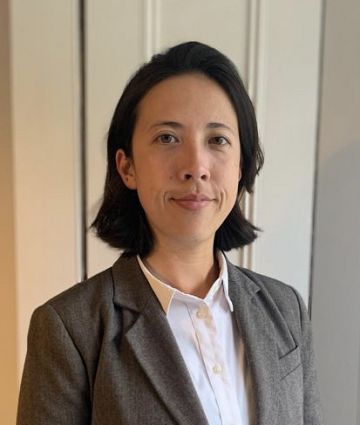
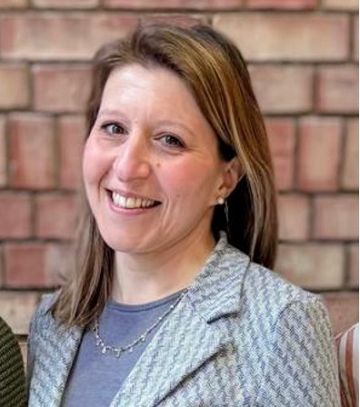
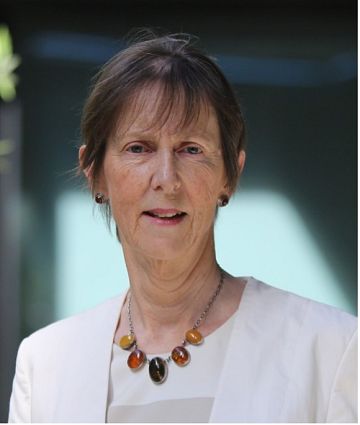
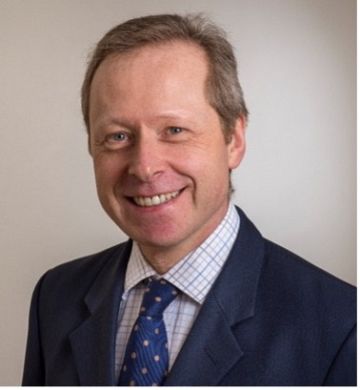
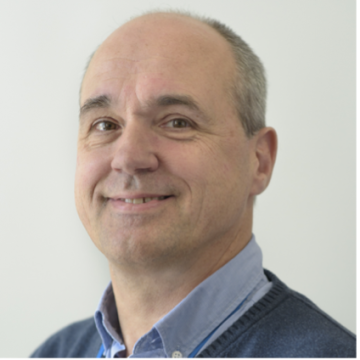
Archive
Congratulations to Professor Adrienne Flanagan
Why do one event when you can do two!
UK chordoma patient choose Prague for his PBT...
UK's first high-energy proton beam machine in...
New Malden Farmers Market supports Chordoma UK
Spring 2017 update from Chordoma UK and...
Emma Holloway and "Team Chordoma" raises some...
Paris marathon runner Alex raises almost...
You've broken the £400,000 milestone!
CUK founders Gerald & Susan Fitz-Gibbon at...
Still plenty of time to register for the Milan...
Well done to Aimee & Steve with another...
What an amazing fund raising weekend it was...
Guitars on The Beach - another huge success...
Angela's travels with her tumour.....
Sean runs the the 8.5 mile Sutton fun run and...
Aimee and Steve run the "Nuts Challenge for...
GlobeImmune Announces Opening of Randomized...
Oliver and Kate run their first marathon for...
With the state of cancer diagnosis a source of...
John Baron MP, chairman of the All Party...
John Baron MP hosts and addresses ‘Cancer52’...
Updating James's Story........
Exceptional Wallace Collection fundraiser for...
Chordoma UK receives a bequest of £10,000.00
News from GlobeImmune Inc following their...
Some facts, figures and a little trumpet...
Lord Darzi formally unveils plans today to...
Central London Gallery Event...
With a quite extraordinary result for...
Sarah Holdsworth - runs like mad for Chordoma...
Dinner Dance, Ferrari's Country Hotel,...
Reception at St James's Palace
Funds are needed NOW to develop new therapies...
Raising funds for research and awareness...
CYCLING FROM LONDON TO NICE FOR CHORDOMA UK...
RAT RACE DIRTY WEEKEND. Ginny Major goes for it!
The LONDON MARATHON.. Freddie, Joanne and...
HAPPY BIRTHDAY TO US, HAPPY BIRTHDAY TO US.....
NEW CHORDOMA UK WRISTBANDS AVAILABLE.
ChordomaUK participating in London's 21 mile...
Blood transfusions during cancer treatment... ...
Imatinib.. (Glivec in the UK) often talked...
New Initiative Launches to Organize the UK...
Researchers at Oxford University Hospitals are...
Identification of repurposed small molecule...
National Cancer Institute Opens First...
Chordoma UK now joined the Cancer52 Alliance...
Walkers raise over £2,500.00 for Chordoma UK
Mail on Sunday article raises awareness
Want to make a donation?
You are the reason we can keep providing our vital supprt and funding. Individual donations and gifts may be made directly to Chordoma UK and enhanced through GIFT AID. Your fundraising can benefit from Chordoma UK`s charitable status enabling donations to be made through the Gift Aid scheme directly to the Chordoma UK bank account.
Donate nowJoin our Mailing List
Please sign up to receive our newsletter and follow our ongoing updates and events.
How your donation is spent
There is little funding available for research into this relentless bone cancer mainly because it is relatively rare, occurring in only 1 in 800,000 of the population. Without a focused approach to raising money for research into chordoma, little will change quickly.
Find out moreGet in touch
If you have any questions about Chordoma UK, or would like to talk to someone about cancer, send us an email and we'll get back to you as soon as we can.
Contact usCommunity
We all support each other
To share experiences, ask questions or vent your emotions and find others who understand.
Join us here






